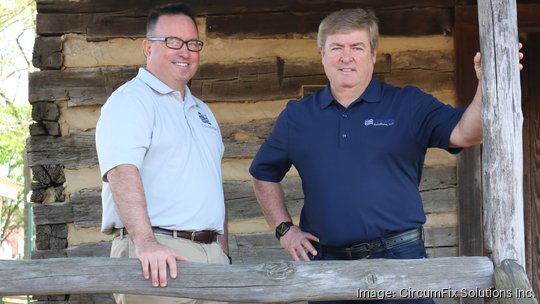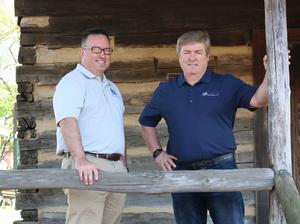
FedEx. Holiday Inn. AutoZone. What do those disparate national brands have in common? As upstart companies, they all trace their origins to Memphians, who believed in the fundamentals of their startups and in the potential of their innovations.
Indeed, the Bluff City has seen the beginnings of the blues by way of Beale Street and rock ‘n’ roll via Sun Studio, and in the business realm, self-service grocery stores got their model in Piggly Wiggly over 100 years ago.
And, while the Memphis startup scene is nascent and was significantly buffeted by the pandemic, there are innovative local startups with the potential to grow into transformative businesses.
Memphis Inno highlights such newly launched firms through MBJ’s Startups to Watch. Memphis Inno, powered by Memphis Business Journal, is presented by the Tennessee Small Business Development Centers.
In keeping with the disparate trend, this year’s Startups to Watch profiles include a medical device disruptor in the surgical space — profiled below — a legal tech platform exploring the artificial intelligence (AI) landscape; and a firm handling a potentially era-setting material with properties that could be applied across a wide range of applications.
CircumFix Solutions
CircumFix Solutions was founded in 2020 by president and CEO Louis Houff and chief commercial officer Ken Richardson, who both have extensive experience in the orthopedic industry. The company’s leadership joined together to develop and commercialize implantable cardiothoracic products based around its circumfixation platform.
CircumFix’s technology addresses how surgeons fixate a patient’s sternum after open heart surgery. The traditional method uses wire, while CircumFix utilizes a polymer harness that wraps around the bone.
In January, the startup received 510(k) clearance from the Food and Drug Administration (FDA), which allows for commercial activities, including the device’s use in surgery and a clinical study to test its effectiveness versus the current standard.
With momentum from the FDA clearance, Memphis Business Journal reached out to CircumFix for details on what’s ahead for the startup. The following Q&A with Houff has been edited for brevity and clarity.
MBJ: What are the most important guiding principles for a startup today?
Louis Houff: Always be honest with yourself and be your own worst critic. Seek to fully understand the problem or unmet need you are addressing. Confirm the proposed solution profoundly solves a major problem or fulfills a significant need of the target consumer. Carefully analyze the business opportunity and commercial viability of the venture. Identify the greatest potential risks or threats of failure and devise a multilayered strategy to mitigate and overcome them. Finally, pitch yourself and fine-tune as necessary until you have totally convinced your toughest critic: you.
Where do you hope to have your company six months from now? A year from now?
In six months, we will have established business relations with at least 50 hospitals and no less than 100 surgeons regularly utilizing our device. In 12 months, we will have established business relations in over 100 hospitals with at least 250 surgeons regularly utilizing our device. Also, we will have amassed enough revenue to achieve profitability.
What is the biggest challenge your company has overcome so far as a startup?
As a startup, we faced many challenges, some expected, some unexpected. Perhaps the hardest was securing seed funding to move our concept on from the back of a napkin. We began our fundraising campaign during the early days of the pandemic when it was nearly impossible to get a face-to-face audience. We also underestimated the lack of appetite from disciplined investors for investment in a development stage medical device startup. It was humbling and frustrating at times, but determination and persistence eventually paid off. The slog makes you stronger and sharper.
What is the current funding environment like for startups?
We are better qualified to assess the field we know: medical device/medtech. In general, the appetite for investment is always there. It’s more the terms and conditions that expand and contract. Early money is the hardest to attract and usually the costliest to secure. It’s critical to know how much you need to complete critical tasks to progress your venture to the next stage. Raise more than you need (about 1.5 times), as delays and cost overruns are normal and not foreseeable. At the same time, don’t raise too much too early, as the dilution effect is most severe early on. Do your homework, develop a detailed task timeline, and research the costs to complete specific tasks. The better you understand your need for funds and timing, the more likely a disciplined investor will perceive your venture as worth the risk. The money is there for the well prepared.








